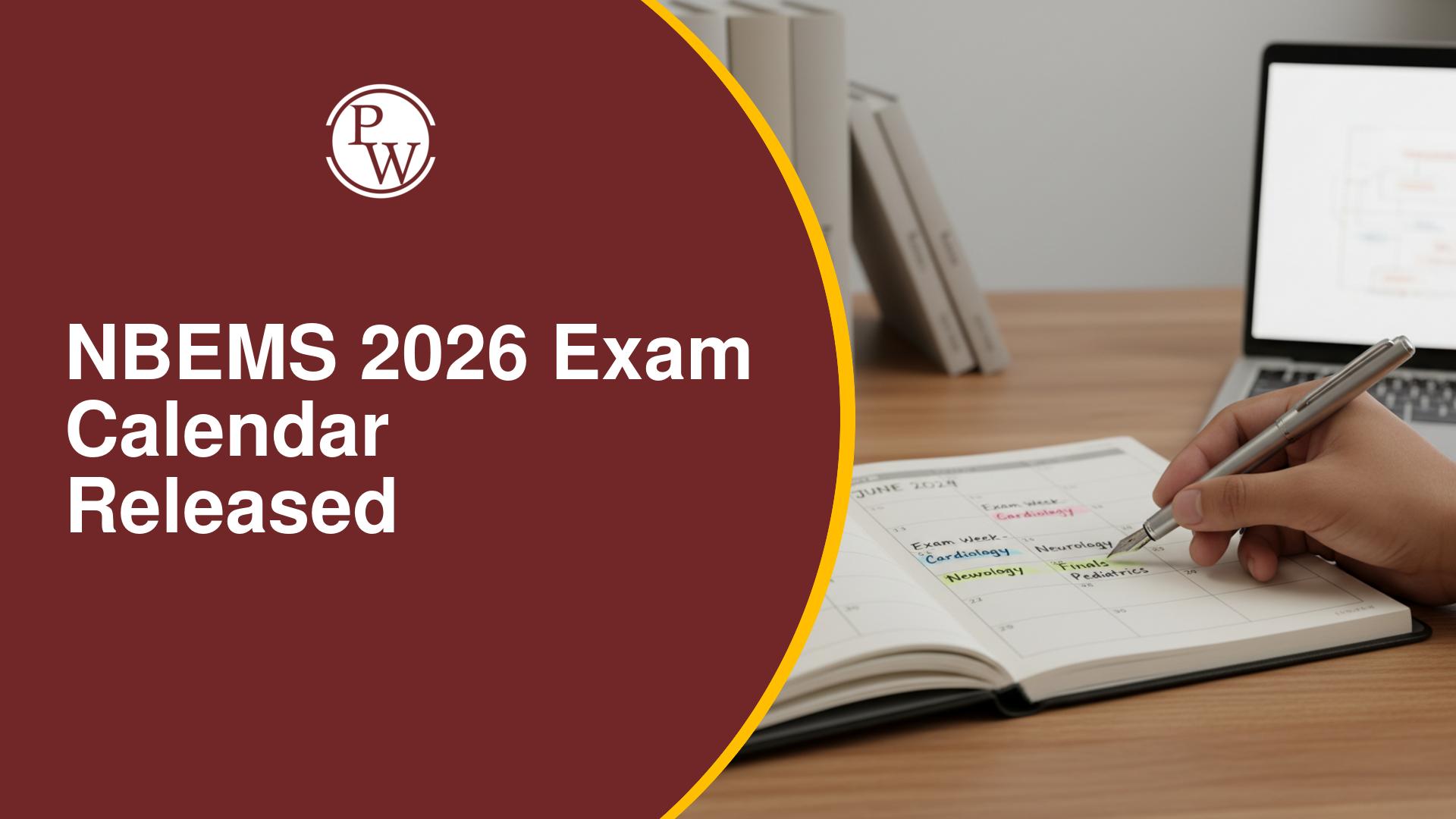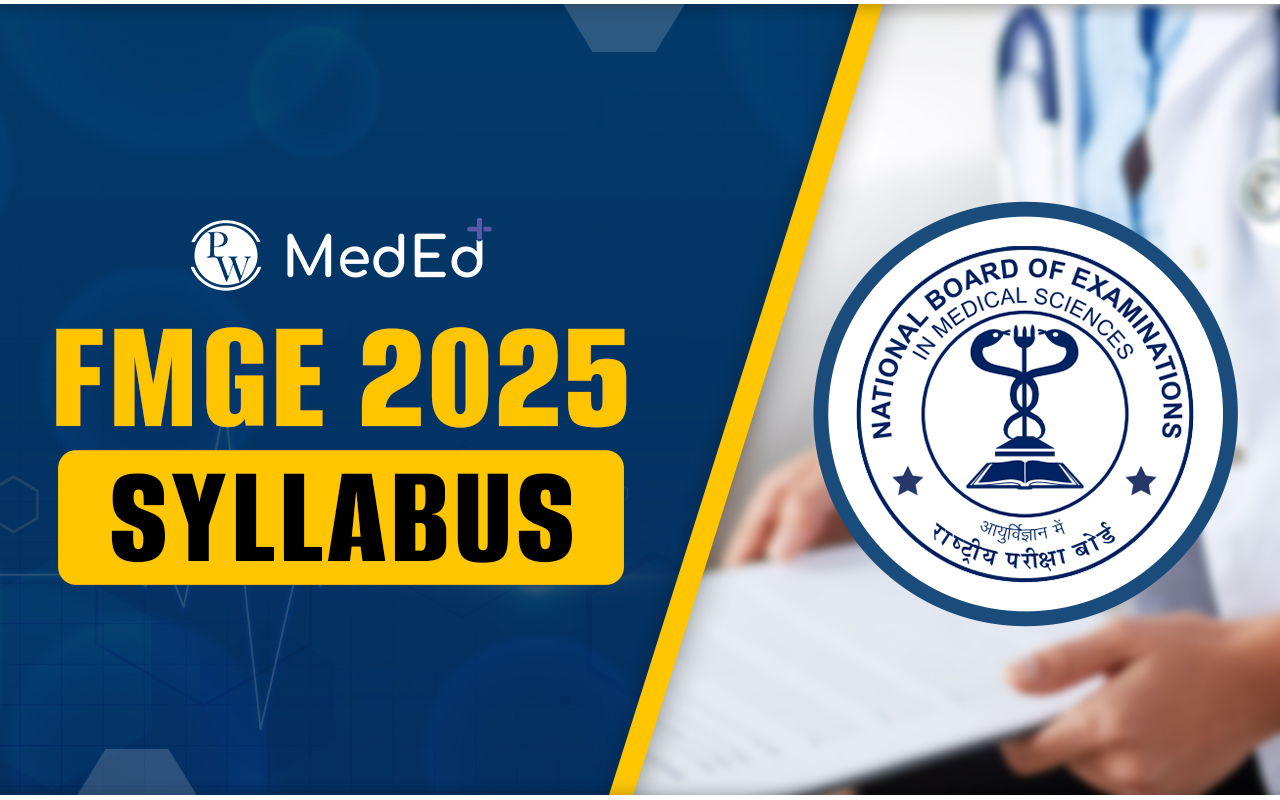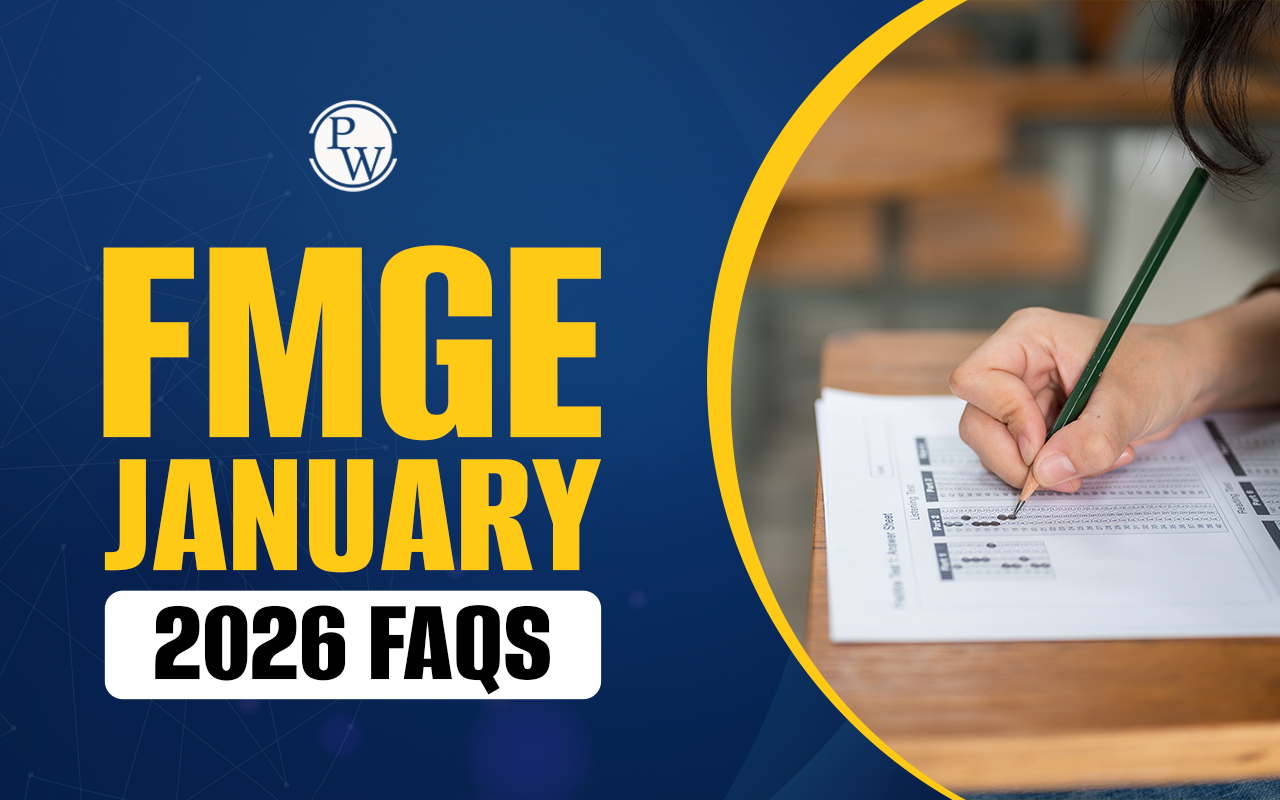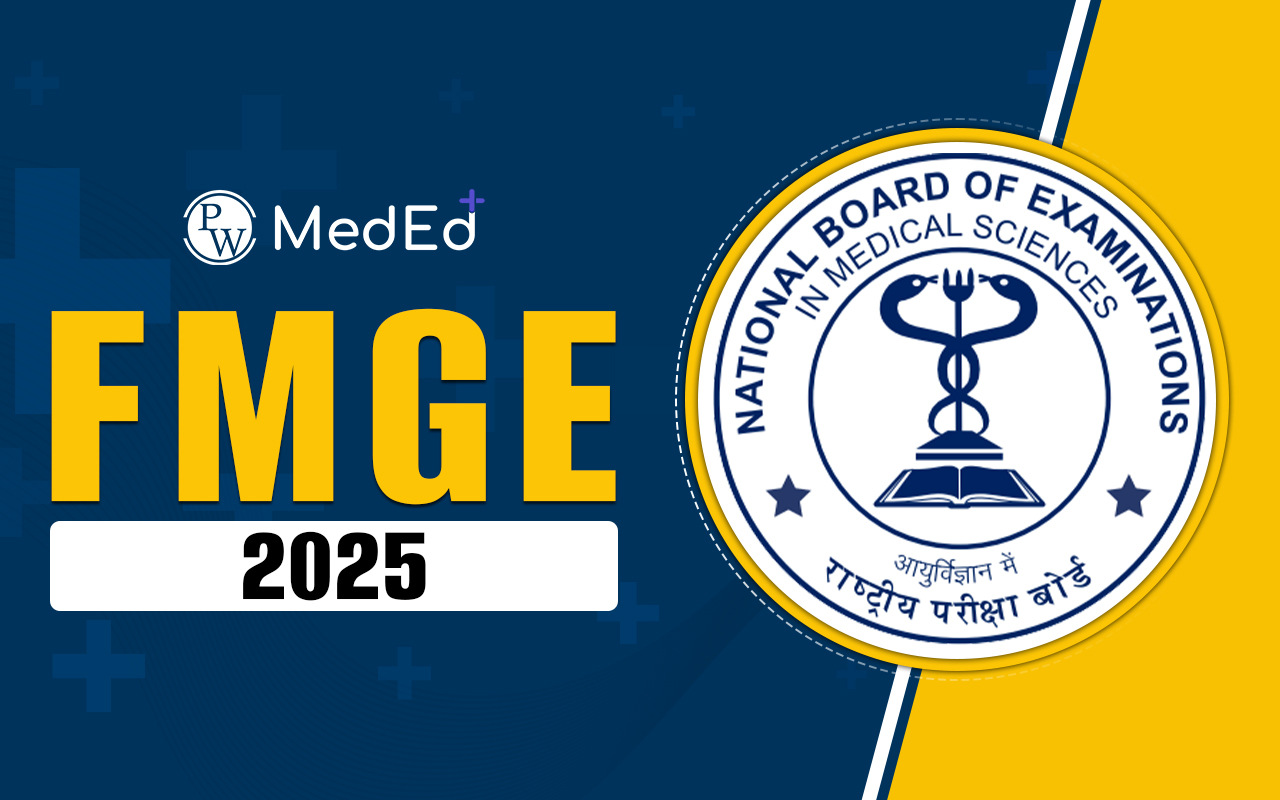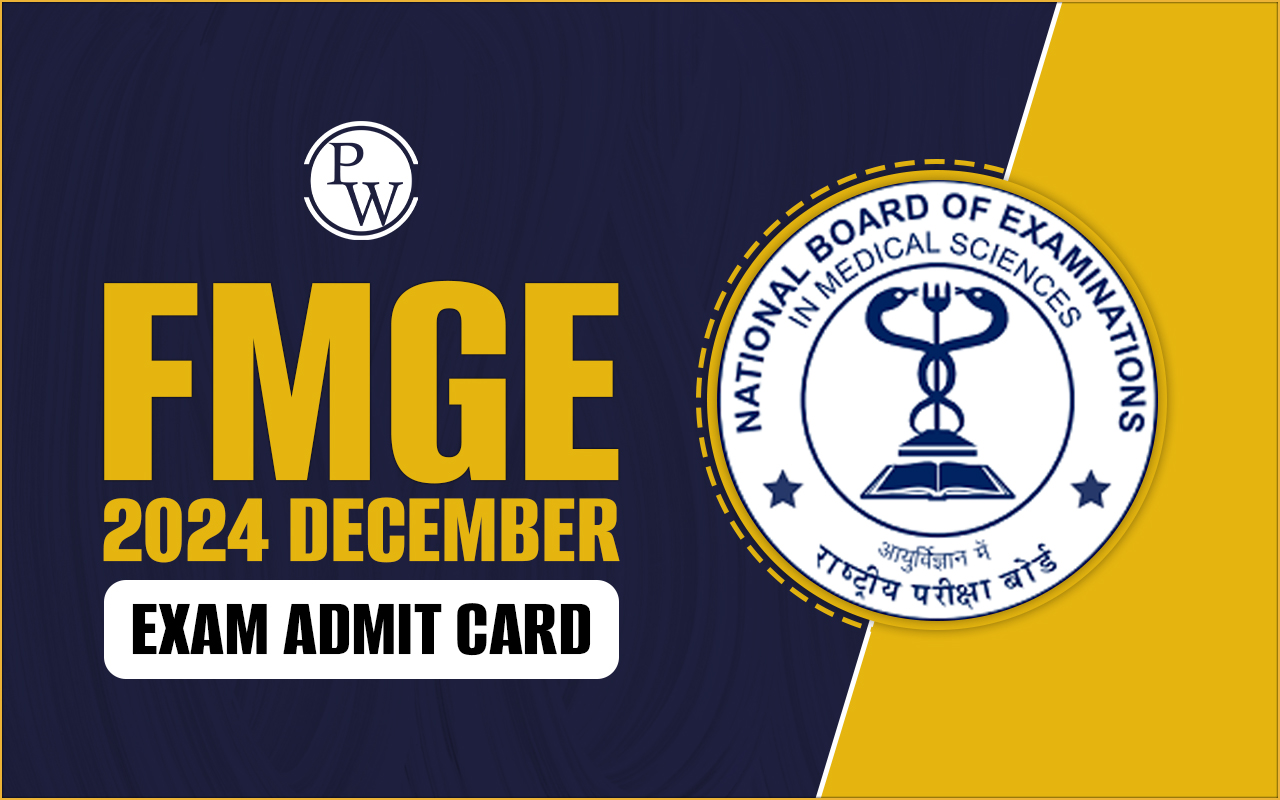Visit - MedEd App
FMGE 2025 Pattern
The FMGE 2025 will be conducted in an online mode using a Computer-Based Test (CBT) format. Understanding the FMGE 2025 pattern is crucial for candidates preparing for the exam. The exam will consist of 300 multiple-choice questions (MCQs) divided into two parts: Part A and Part B , with each part containing 150 questions. The total duration of the exam is 5 hours, allowing 2.5 hours for each part. The FMGE 2025 pattern also divides each part into three sections (A, B, and C), with 50 questions in each section and 50 minutes allotted to complete each section.| Particulars | Details |
|---|---|
| Mode of Examination | Online (Computer-Based Test) |
| Total Questions Asked | 300 (150 questions in two parts) |
| Total Sections in Each Part | Three (A, B, and C - 50 questions each) |
| Exam Duration | 5 hours (2.5 hours for each part) |
| Language | English |
| Marks for Correct Answer | 1 mark |
| Negative Marking | None |
Also Check : FMGE 2025 Exam Date
FMGE 2025 Subject-wise Marks Distribution
The FMGE 2025 subject-wise marks distribution includes both pre-clinical and clinical subjects, ensuring that candidates are well-prepared in all necessary areas of medical knowledge as per the Medical Council of India’s guidelines.Pre & Para Clinical Subject Distribution
Here’s how the marks are distributed across pre and para-clinical subjects in the FMGE 2025 pattern:| Pre & Para Clinical Subjects | Distributed Marks |
|---|---|
| Biochemistry | 17 |
| Anatomy | 17 |
| Physiology | 17 |
| Microbiology | 13 |
| Pathology | 13 |
| Pharmacology | 13 |
| Forensic Medicine | 10 |
| Total | 100 |
Also Check : FMGE 2025 Admit Card
Clinical Subject Distribution
For clinical subjects, the FMGE 2025 pattern distributes marks as follows:| Clinical Subjects | Marks |
|---|---|
| Medicine and allied subjects | |
| Medicine | 33 |
| Psychiatry | 5 |
| Dermatology & STD | 5 |
| Radiotherapy | 5 |
| General Surgery and Allied Subjects | |
| General Surgery | 32 |
| Anesthesiology | 5 |
| Orthopedics | 5 |
| Radiodiagnosis | 5 |
| Pediatrics | 15 |
| Ophthalmology | 15 |
| Otorhinolaryngology | 15 |
| Obstetrics & Gynaecology | 30 |
| Community Medicine | 30 |
| Total | 200 |
FMGE 2025 Marking Scheme
The FMGE 2025 marking scheme is clear and straightforward. Candidates will earn 1 mark for each correct answer . The FMGE 2025 pattern does not include negative marking, meaning that candidates are encouraged to attempt all questions without worrying about penalties for incorrect answers. To pass the exam, candidates must score at least 150 out of 300 marks , representing a passing percentage of 50% .FMGE 2025 Syllabus
The FMGE 2025 syllabus outlined in the official brochure, which will be released by the examining authority. The syllabus for the exam follows the Graduate Medical Education Regulations set by the Medical Council of India, with prior approval from the Government of India. It encompasses both pre and para-clinical subjects as well as clinical subjects. The FMGE 2025 pattern allocates a total of 100 marks for pre and para-clinical subjects, while clinical subjects carry a weightage of 200 marks. This distribution ensures a balanced assessment of essential medical knowledge.Also Check : FMGE 2025 Result
FMGE 2025 Preparation Strategies
Effective preparation for the FMGE 2025 is essential due to the competitive nature of the exam. Here are some strategies based on the FMGE 2025 pattern:- Understand the Exam Format: Familiarize yourself with the FMGE 2025 pattern to know what to expect, which will help alleviate exam day anxiety.
- Subject Weightage: Focus your studies on clinical subjects, as they carry more marks, based on the FMGE 2025 pattern. Ensure you allocate study time accordingly.
- Practice with Past Papers: Practice previous years' questions to understand the type of questions asked in the FMGE 2025, which helps improve time management during the exam.
- Time Management: Develop a study schedule based on the FMGE 2025 pattern, ensuring that all topics are covered efficiently with adequate time for revision.
- Stress Management: Use relaxation techniques like meditation or deep-breathing exercises to manage stress as the exam day approaches.



